Read this blog to learn about protein for focus and brain health in ADHD, and how you can get enough protein in your day-to-day diet for ADHD.
If you know someone with ADHD, you might wonder what can be done to help with focus and general brain health, or maybe even what other disorders can cause a short attention span. As a parent with an ADHD child, you might be glad to learn that using protein for focus and brain health in ADHD is a common solution that can help many – but how much can it help, and how can you ensure that you get enough protein in your diet?
Want to learn more about ADHD and what you can do to help someone with this disorder? Learn about ways to create an ADHD-friendly home environment, how schools can support ADHD students, and how you can help adults manage ADHD in the workplace. And if you want to better understand friends with ADHD, do your research and learn about common myths about the disorder.
Why Protein is Crucial for Brain Health and Focus
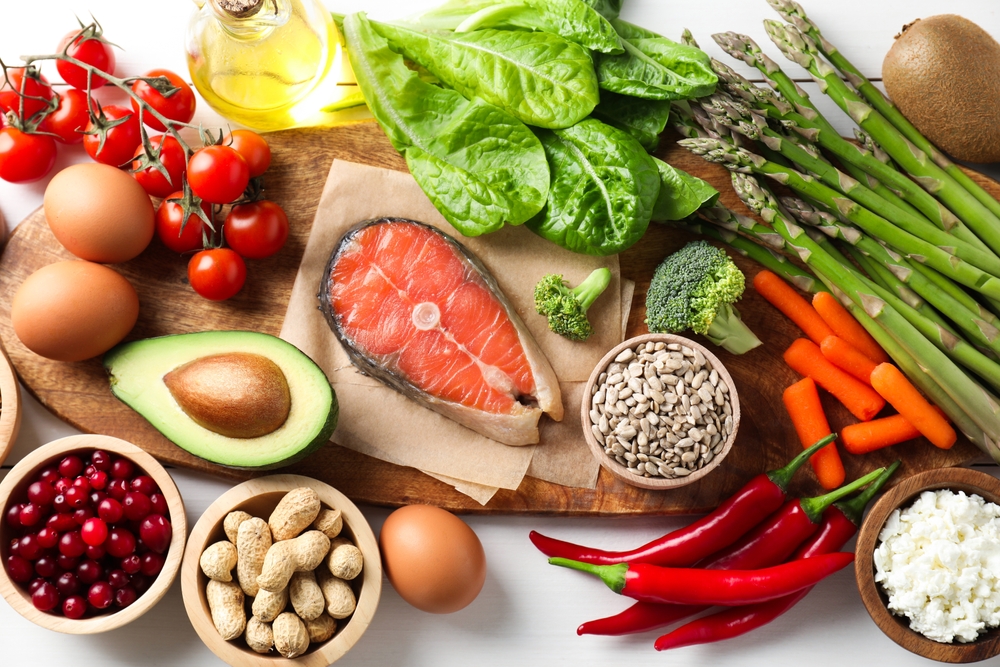
Protein gets broken down into amino acids in our bodies, and amino acids tell the neurotransmitters in our bodies what to do and what not to do. So, without enough protein, we are not able to function properly, and important messages can’t be carried around our bodies.
In short, protein helps boost focus and brain health in ADHD by supporting neurotransmitter production, which regulates mood and attention levels.
In people with ADHD, this is crucial, and consuming enough protein can lead to improving focus when it matters most. However, it’s important to remember that people can be affected by things differently, so what works for you might not work for someone else!
Protein for focus and brain health in ADHD has been explored for many years now, and researchers have continued to unveil the relationship between the two. Studies have suggested that dopamine levels – which are low in people with ADHD – can be increased by consuming enough protein, which then improves focus. We’ll look at this in more depth in the sections below.
The Link Between ADHD and Neurotransmitters
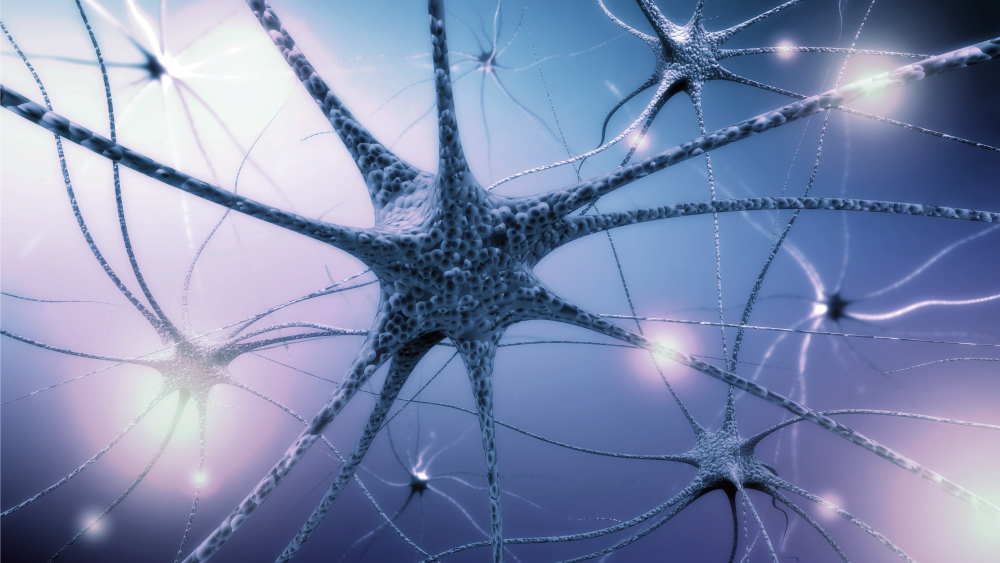
People with ADHD have notable lower levels of norepinephrine compared to those without the disorder. Norepinephrine is a neurotransmitter is a synthesised from dopamine (our ‘feel good’ hormone), and is thought to be linked to organisation problems, inattention, and other ADHD symptoms.
Neurotransmitters are located at the end of neurons, and at the top of each neuron is a synapse. In order for a neurotransmitter to send a message, the signal must jump across the gap between the neurons via the synapses on either end – neurotransmission. However, the receptors at in these synapses can only bind to specific neurotransmitters, much like a lock and a key, and a message cannot be passed on to the rest of the body if the lock (receptor) and key (neurotransmitter) do not fit together, or if there are not enough of each.
In the case of ADHD, the lower levels of dopamine are thought to be a result of more dopamine transporter proteins within the brain, which remove the hormone. This results in dopamine being removed too quickly and the receptors are left without their key to pass on the message – therefore, the person’s ability to focus can be diminished, and they might feel like they are lazy, even though this is not the case.
How Protein Supports Focus and Reduces ADHD Symptoms
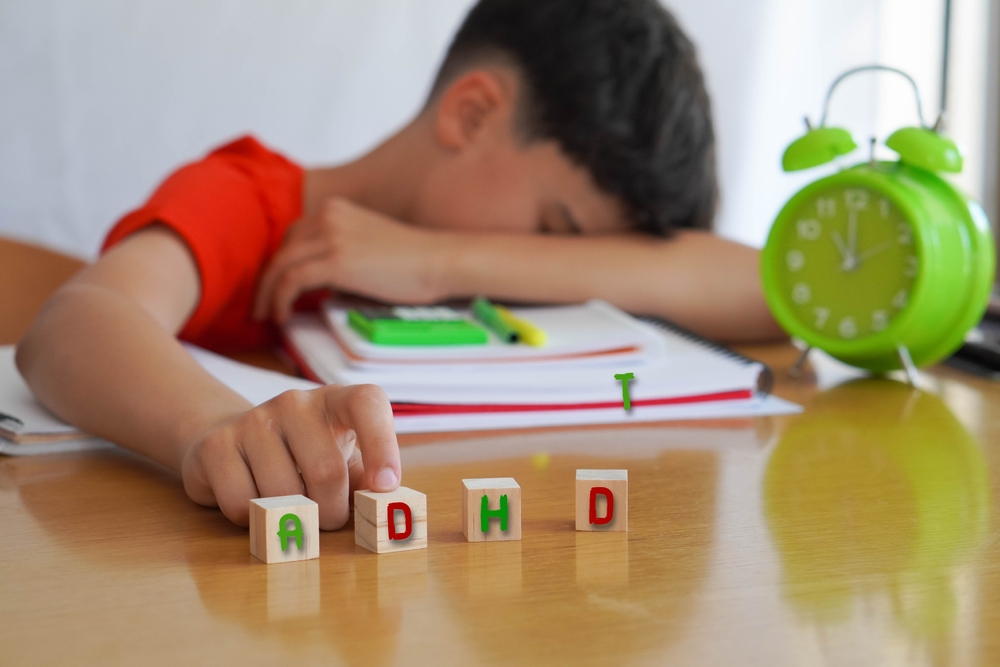
As neurotransmitters are key in ADHD symptoms, and lifestyle choices can alter the level of these transmitters in the brain, it makes sense that your diet can play a key role in symptoms. There are many recommendations when it comes to the ADHD diet, but the focus primarily lies on foods that should be avoided, and foods that should be sought after.
One of the most important elements of diet to consider for people with ADHD is protein. As we mentioned before, protein works to help send signals across our bodies, and therefore it can help with focus and a variety of ADHD symptoms.
What Foods Should People with ADHD Avoid?
There are a handful of food types that professionals generally recommend that those with ADHD avoid, but this can be different for everyone. While we encourage everyone to determine what works for them and what doesn’t, there are some general guidelines that can help with improving behaviour and increasing focus for people with this disorder, and diet can play a key role in this.
Some foods that can be triggers for ADHD symptoms include:
- Highly processed foods
- Fried food
- High-sodium foods
- Caffeinated drinks
- High-sugar foods and drinks
- Lots of preservatives
- Allergens
Once again, please remember that everyone is different, and what might negatively impact your ADHD symptoms might not negatively impact someone else’s. A popular example of this is caffeine. Some individuals with ADHD can use caffeine as a way to help them focus, while it can negatively affect someone else. So, while some ADHDers can enjoy their coffee or energy drinks, others need to limit or avoid intake.
Top Protein-Rich Foods to Include in Your Diet
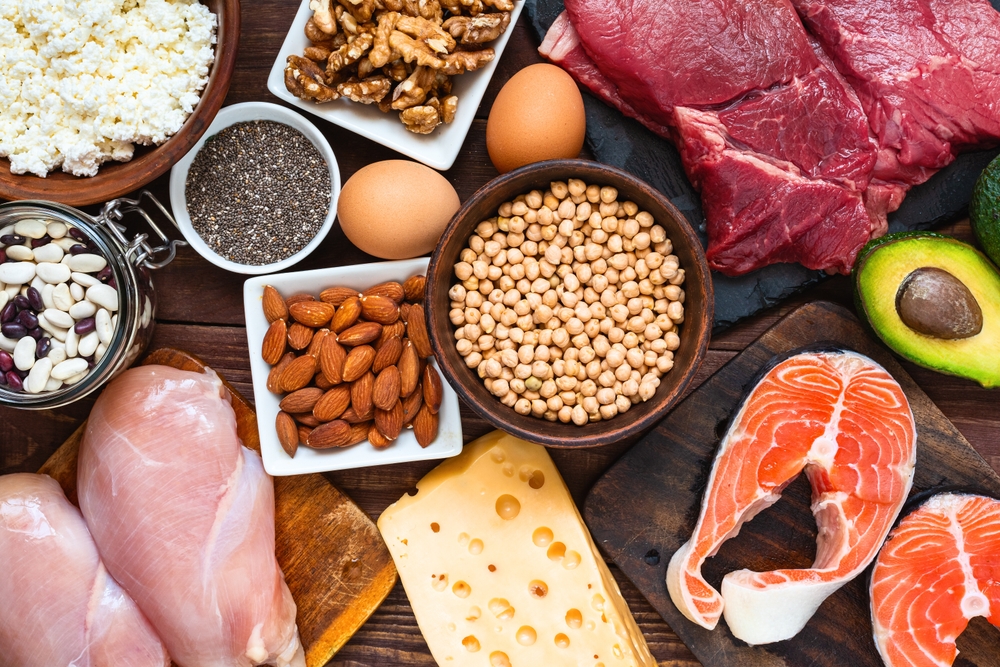
Luckily, protein is easy to come by, and is found in all kinds of food that you will already be familiar with. However, not all food is made equal, and it’s worth knowing about some of the best sources of protein out there to make sure that you have a healthy diet.
Top 5 protein-rich foods to support ADHD brain health:
- Eggs
- Various meat (beef, pork, chicken, turkey)
- Milk
- Quinoa
- Almonds
There is a wide variety of protein-rich foods available in stores and online, and there will definitely be something for everyone. Whether you are vegan, vegetarian, pescatarian, or anything else, there will be suitable high-protein ingredients and meals that you can work into your everyday diet.
Tips for Incorporating Protein into ADHD Meal Plans
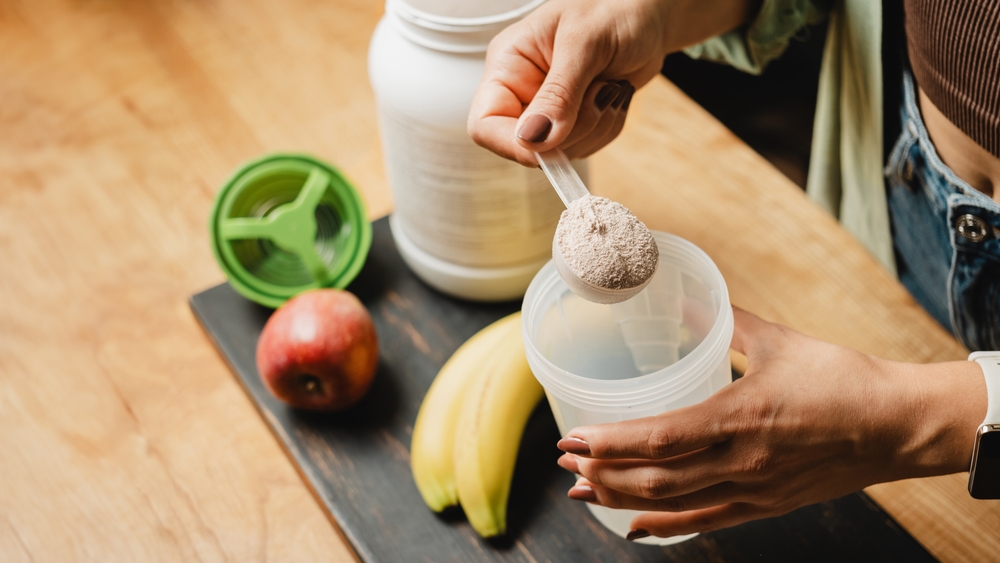
In order to effectively include enough protein in your diet as someone with ADHD, it’s useful to have a line-up of protein sources that can be enjoyed as meals, snacks, and desserts. Not only that, but it helps to have some sources that will last you a long time so that meal prep can be done to reduce stress.
Find Proteins You Love
It’s always a good idea to have one or two sources of protein that you can lean on. This could be chicken breast, eggs, quinoa, or whatever else you are feeling. Find something that you love, and preferably something that is versatile, and you won’t need to worry about struggling to get enough protein in your diet for the foreseeable future.
Don’t be Afraid to Try New Food
This might go against what we said above, but don’t be afraid to try new things! You might want to stick to what you know and love, but this could be detrimental for someone with ADHD when you suddenly fall out of love with the protein source you have been relying on.
Make sure that you have alternatives lined up for the day that you decide that you never want to touch another chicken breast again. Not only that, but there are dozens of lesser-known protein sources out there that you might genuinely love, so don’t be afraid to try it.
Protein-Filled Snacks Are Your Friend
Snacks that are high in protein include things like almonds, yogurts, eggs, cheese, and so much more. There are plenty of options to try out if you want to consider new snacks, and we encourage you to try different things, because there will definitely be something you love.
If All Else Fails, Try Protein Powder
Protein powder might sound like something that only people who spend six hours at the gym might need, but in truth, this useful product can be beneficial for everyone. There are hundreds of protein powder options available, and they come in a variety of flavours for you to enjoy and add to anything from your morning smoothie to all kinds of desserts and sweet treats.
How The Brain Workshop Can Help with ADHD Nutrition and Support

The importance of protein for focus and brain health in ADHD is still being researched, and experts are slowly uncovering the relationship between the two. So, if you want to try and improve your ADHD symptoms, consider getting enough protein in your diet, and see if there are any changes.
Want to learn more about ADHD-friendly diets? Contact The Brain Workshop today for personalised strategies to support brain health and focus naturally.
Now that you know about protein or focus and brain health in ADHD, why not learn more? Please don’t hesitate to contact us at The Brain Workshop and find out more about us, our team, events, or read our FAQ.
For more information on ADHD, find out if brain rot is related to ADHD, if ADHD can develop later in life, or if people with ADHD need more sleep – there is lots to read. Or, if you want to get tested for ADHD, we would be happy to help.






